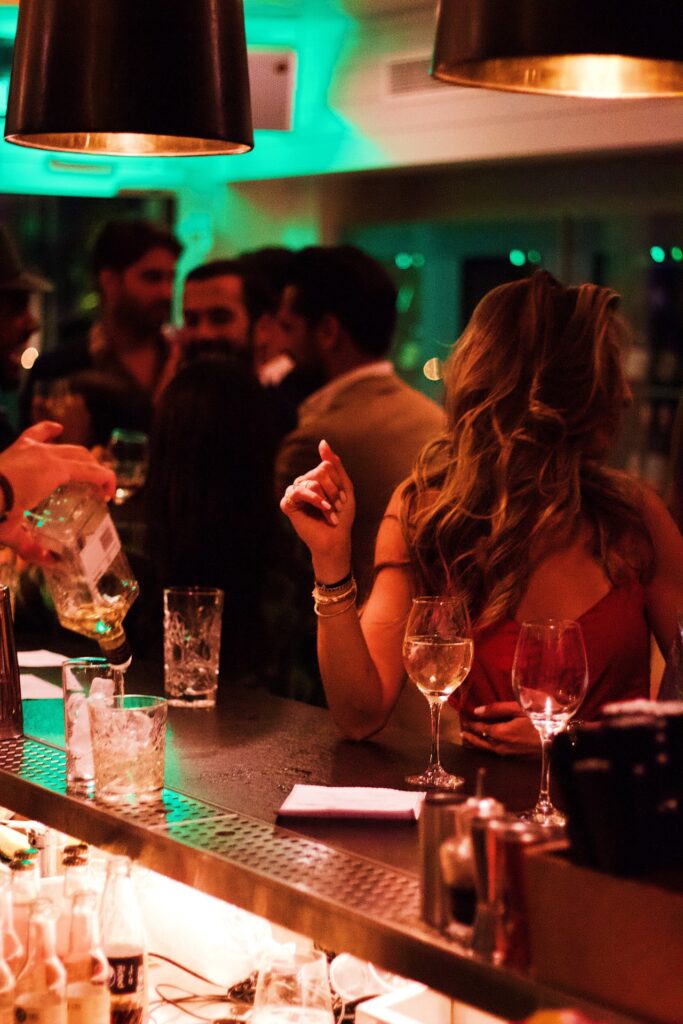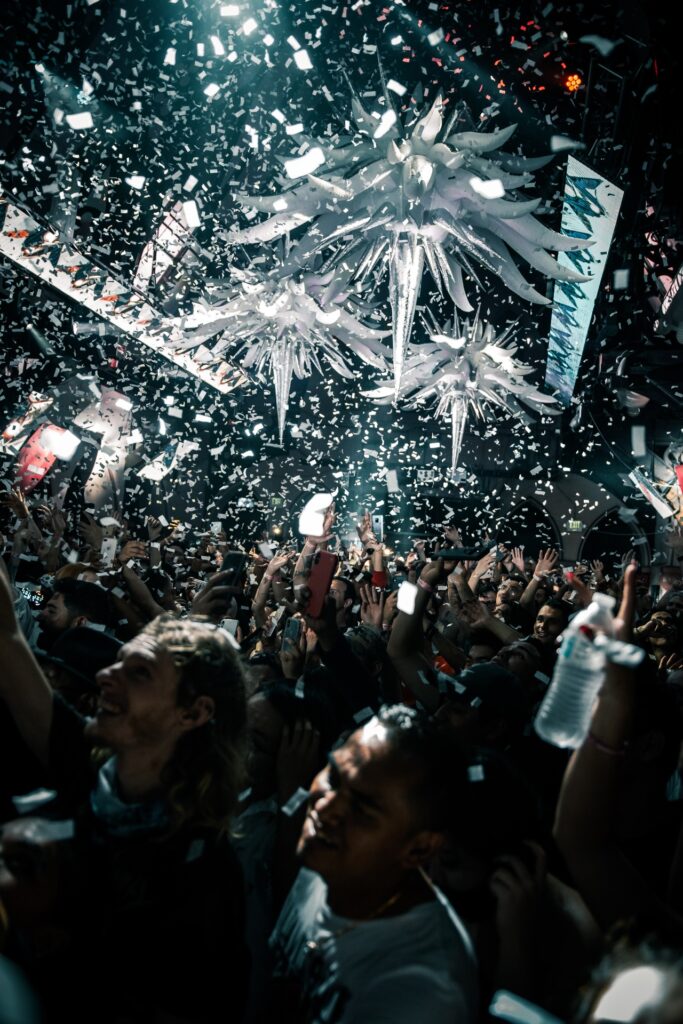True freedom is here at last, but what does this mean and what are the new rules venue owners and nighttime businesses must abide by?
July 19th marks the end of a torrid 16 months for venue owners and managers across the country. It has been dubbed a “new phase of continued caution” by the PM, and party-goers and club-enthusiasts have been making the most of the first hours of true freedom.
As the clock struck 12, Brits flocked to local nightclubs and enjoyed their first night outside of lockdown. Dancefloors were ceremoniously opened and strangers were singing, hugging and dancing once again.
Many have criticised the government’s decision to go ahead with reopening; especially with cases are rising tremendously, predicted to hit 100,000 new cases a day. But for an industry that has been hit the hardest, for nightlife, reopening can not come soon enough.
Venues in city centres could not wait to show their clubbing spirit. Leeds had special openings at both Viaduct Showbar and Bar Fibre, each showcased by the BBC. These are two venues that have come out of hibernation swinging. Businesses need success this summer to pay off crippling debts incurred through COVID – stats show the overall number of nightclubs fell by a quarter in the last five years. This £30 billion industry has not had the protection it deserved over the course of the pandemic.
But NDML are here to help. We are forever continuing our mission to do everything to protect venues and the nightlife sector. We provide insurance for the nighttime industry, providing bars restaurants and nightclubs with a wide range of specialist covers. Public liability insurance, employers’ liability insurance, fire, flood and theft can all be covered with our bespoke policy, tailored to your business.
We provide visitations, risk assessments and a dedicated in-house claims team. NDML have showcased venues that have shown resilience and loyalty to their customers throughout the pandemic with our #WeAreNightlife campaign.
We also provide a plethora of information you need to keep your venue running safely. For Freedom Day, we have curated a list of the most widely asked questions proposed by venue owners and here are our answers, sourced from official domains.
Do staff have to wear masks in a bar or restaurant?
You don’t have to wear a mask in a bar or restaurant. Previous rules state in order to move around, enter or exit would need a mask. But now the public only require a mask to commute as trains and busses retain safe spacing rules but bars relax restrictions. Businesses reserve the right to request the use of masks in their premises but it is not mandated by law. Staff members should not be expected to wear one.
Do nightclubs need to check for vaccine passport or proof of a COVID 19 negative test?
It is not law or regulation yet to have to ask customers to show any evidence of vaccination or immunity. For July and August, the government has merely advised venues, businesses and large events to utilise the NHS COVID pass. However, venue owners have outwardly stated they will not be using this tool, they argue it would create a barrier to both customer enjoyment and getting the industry back on its feet.
They have posited that nightclubs are the most equipped sector to deal with the virus. Building have already invested in proper air ventilation and security for monitoring capacity. The frequency of cleaning is stringent and sanitation stations are located through, as well as floor staff well-versed on crowd management.
The UK government has said it reserves the right to mandate the use of NHS COVID passes at a later stage.
And in an announcement made today, the government have outlined plans for all nightclub-goers to be required to show proof of double vaccination. This has been met with stark resistance by the nightlife industry. See what Michael Kill of the NTIA has to say here.
Does there need to be table service in pubs and bars?
Table service was made a mandatory service to be provided by restaurants and pubs in order to help prevent transmission. However with restrictions lifted this measure is no longer necessary. And yet many managers may opt to continue with table service as continental-style table service has been deemed more relaxed and provides quicker service.
Vertical drinking is set to see a return, as is ordering at the bar. However as the public conscience has been altered throughout the pandemic, and tendencies to avoid close-contact may be strongly instilled in customers, the preference for table service is predicted to stick. And with the required technology more readily available, many managers may push customers to utilise these methods.

Do I still have to do a COVID 19 risk assessment?
Yes a COVID safety risk assessment is still mandatory. COVID risk assessments include protocols around ventilation, air conditioning, hand-hygiene and cleaning. It also involves reducing risk by training workers efficiently on the proper management of transmission risk. Situations where transmission could occur need to be addressed and noted. A good COVID risk assessment puts in place controls which will reduce workplace transmission.
For further advice on writing up your COVID risk assessment, read our information on Risk Management Services Upon Reopening with NDML and contact us.
Do venues still need COVID signage and one-way markers?
It is not mandatory for venues to have any signage out of the ordinary. Venue which opened in step three can keep up their signage and one-way stipulations if they prefer. For venues such as nightclubs, cinemas, bowling alleys and theatre which have just opened July 19th, there is no necessity to set up signage or put one-way systems for reopening.
Do venues still need sanitation stations?
It is highly recommended to have in place sanitation stations if your venue hasn’t already, however it is not required by law.

Are venues open at full capacity?
All venues are permitted to open at full capacity. This includes nightclubs, theatres, cinemas, bars, pubs, bowling alleys and music entertainment venues. Full capacity numbers may have changed with the huge push for outdoor seating and outdoor hospitality over the past few months. Please ensure you check with your broker that your outdoor space is covered and your maximum capacity capabilities are registered with insurance.
Do venues need to continue safe spacing? What if I want to maintain COVID safety restrictions?
As a private premises, venues are able to continue to enforce safe spacing and check in, however its is not mandated or obligated and could be met with resistance from the public. TOe encourage safe spacing, reduce the availability of seating at your venue, don’t open to full capacity yet, and continue to display one-way signage. It’s fine for venue owners and managers to help staff and customers feel comfortable by maintaining COVID safety regulations, just make sure to have proper signage and inform customers on entry of the private property’s expectations.
Are the COVID laws different in Scotland, Wales and Northern Ireland?
Yes. Scotland are remaining with the safe-spacing and mask-wearing restrictions for now. Restrictions include venues closing at midnight, no nightclubs or adult entertainment venues open and 2 meter spacing between groups. Scottish restrictions will remain until the 9th August.
In Wales, nightclubs and over 1000 capacity crowds will be permitted on the 7th August. Currently there is still a six person limit on households and safe-spacing restriction in place in public venues.
In Northern Ireland, Restrictions will be eased further on 26th July, if approved at a review on 22nd July. Current restriction prevents three households meeting inside a private residence as well as theatres and seated venues from reopening.
At NDML, we want customers to respectfully and responsibly enjoy the brilliant UK nightlife sector. We also want businesses to feel confident in getting back to servicing the need and providing a great time. NDML fully expects the industry to be singing, dancing and partying along to Ultra Nate’s song Free from this week onwards.
For a further helping hand on re-opening after the pandemic, see our re-opening handbook for the hospitality and leisure industry.







